We’re in the throes of awards season. Oscars, Emmies, Golden Globes, Tonies—the world once again turns its attention to tiny statuettes of great importance. But why do awards matter so much? And who stands to gain most from this annual exchange of cultural capital?
Read on as we zone in on the concept of cultural capital, analyze entertainment buzz and catch up with a graduate of IE Business School‘s International MBA who’s landed a place on the Academy Awards 2025 Nominations list.
What is cultural capital?
First, what’s the definition of cultural capital? In this context we’re discussing Pierre Bourdieu‘s argument that there are three types of capital: economic, cultural and social. Economic capital drives power, but social and cultural capital both feed into the torrent. That’s because social knowledge or cultural prestige either signal or open access to economic capital. We can define social capital vs cultural capital in the following way:
Social capital is behavior that identifies us with a particular group of people, while cultural capital is our understanding of cultural codes. Both can overlap.
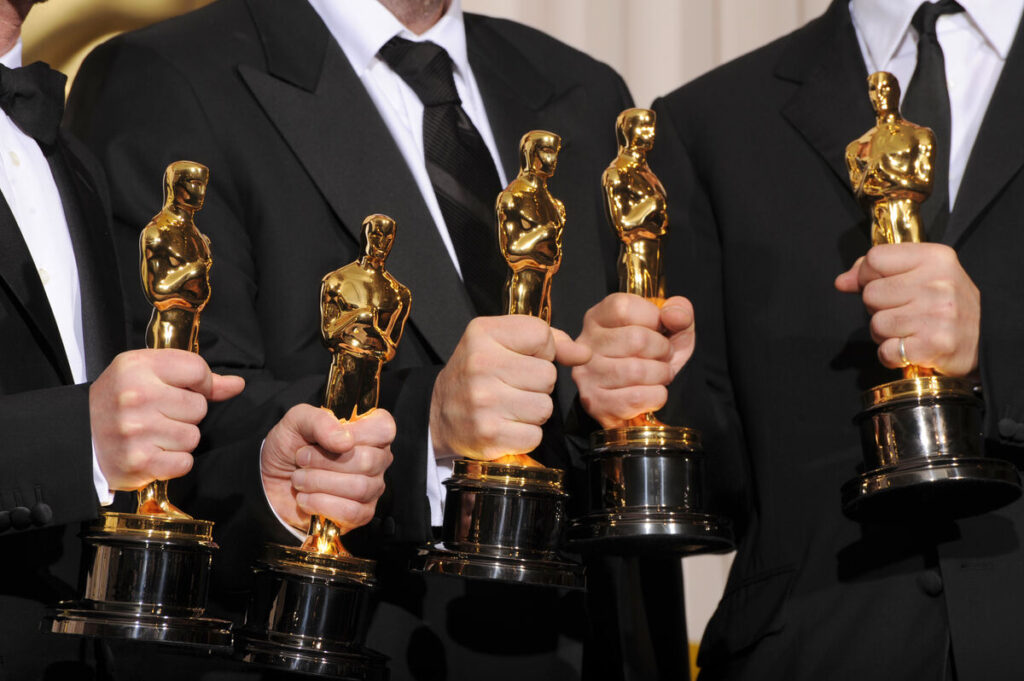
Don’t worry, we’ll go into more detail. But a quick disclaimer—Bourdieu’s theory of economic, cultural and social capital is just that: a theory. It hinges on the idea that social behavior is another means of competing for economic resources. But clearly there’s no empirical grounding for that, as it doesn’t account for all the nuances in human behavior.
With that out the way, let’s look at Bourdieu’s three iterations of cultural capital.
Embodied cultural capital
Embodied cultural capital is the knowledge, skills and outlook you gain from your social standing. All help you meet cultural expectations and are often picked up unconsciously. This could be a trained eye for art or the ability to read sheet music.
Objectified cultural capital
Objectified cultural capital is a physical object you can own. Books or paintings, for example. Often, only those with a certain amount of embodied cultural capital can “understand” what these objects represent.
Institutionalized cultural capital
Institutionalized cultural capital is when an organization recognizes an individual. As such, the established vanguard of culture bestows its capital on a select few.
The exchange of cultural capital at the Oscars
Awards ceremonies like the Oscars use every iteration of cultural capital. The nominated artists provide embodied cultural capital. The awards are objectified cultural capital. And the organizers provide institutionalized cultural capital.
These three magic ingredients offer an exchange of cultural capital that captivates audiences worldwide. The Academy Awards’ hype is akin to a major sporting event—except, much like Bourdieu’s theory, there is no empirical basis for the winners. They just are.
And while we may disagree with some decisions, we accept these awards are decided by those with greater tastes than our own.
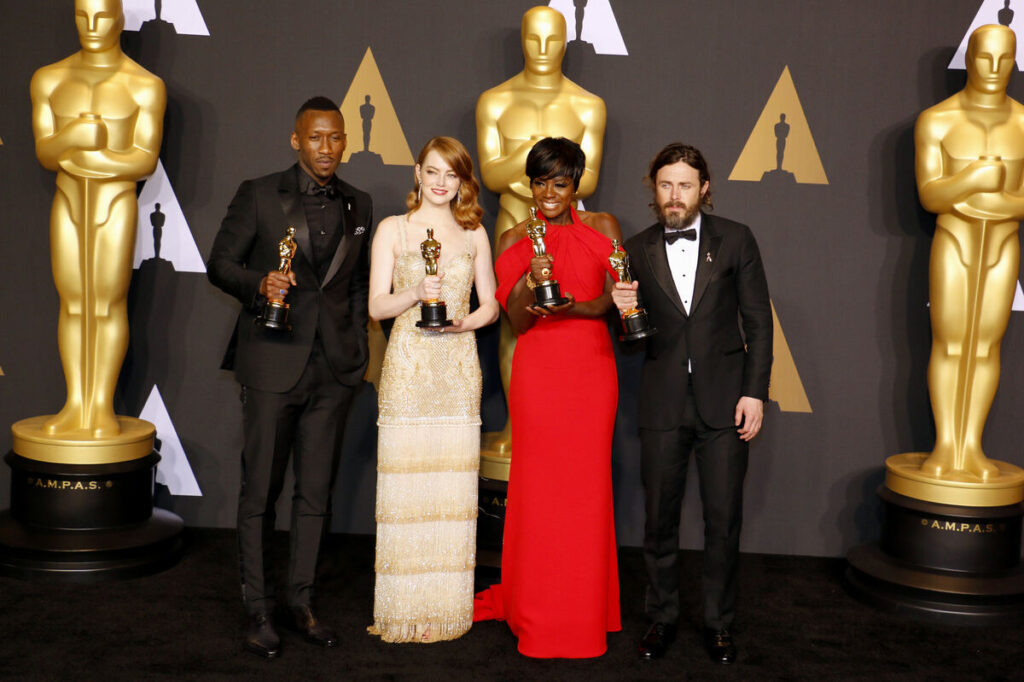
The Oscars are decided by the Academy of Motion Picture Arts and Sciences. The Golden Globes by the Hollywood Foreign Press. The Emmies, by the Academy of Television Arts & Sciences. All purveyors of cultural capital—because we/they say so. So how do they hold onto a status that’s so immaterial?
Award season controversy: Capitalism and Oscars combine
Who remembers the Will Smith slap? Or the La La Land / Moonlight mix up? We can all agree that award season controversy is great reading material. It’s also great social capital. Let me explain: In Jonah Berger’s “Controversial” he outlines that viral content is shared, in part, because it makes the sharer look interesting. When ceremonies like the Oscars cause a stir in popular culture, their social relevance translates into viewership.
Intentional or not, recent years of award season controversy have reversed a downward trend which started in 2015. Which shows the close link between the Oscars and capitalism. In short, Oscars audience size = cultural relevance.
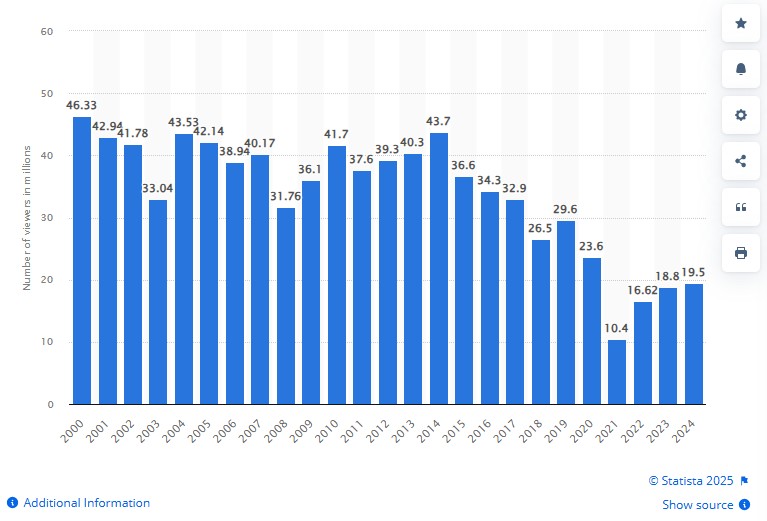
1. The Oscars are the most prestigious awards in film.
2. We, the public, deem the Oscars to be relevant.
If either of these two statements ceases to be true, so must the other. Anyone remember Joaquin Phoenix saying the Oscars were “b******t”? It wasn’t just controversial because he cussed. It also undermined the power system that upholds many careers. Stars seek out recognition from the Academy Awards. The Academy Awards legitimize their careers. This fluid exchange of cultural capital benefits both parties.
And, just as Bourdieu pointed out, this accesses economic capital. According to Statista, the ad revenue from the 2024 Oscars exceeded $120 million. And Oscar winners can expect a “20% pay bump” on their next project. So Bourdieu’s theory may not be empirical—but the numbers certainly talk.
IE Business School graduate features at the Academy Awards 2025
We’re very excited to share that Maya Gnyp, graduate of the International MBA 2019, is named among the Academy Awards nominees for 2025. Maya produced “I Am Ready, Warden“, which is named in the category for “Best Documentary Short Film at the 97th Academy Awards”. The piece follows John Henry Ramírez, a convicted murderer, as he approaches his death sentence in the state of Texas. We were lucky enough to catch up with Maya to hear about her journey.
“I grew up in Australia but was born in Poland and travelled a lot in my early years,” she tells us. “I studied in Australia and the US and started my career in London, where I worked at a start up in film sales and distribution. As it often goes with startups, I was able to garner high level experience early in my career. I traveled to all the big film markets, and it was there that I realized I wanted to be the person on the other side of the table. I didn’t want to be a distributor—I wanted to be a producer.”
After moving back to Melbourne and producing 5 feature documentaries across 7 years, Maya took the next step towards an executive producing role—studying the International MBA at IE Business School.
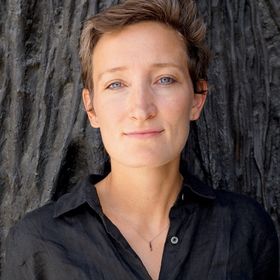
“I’ve always found that work experience in various regions is an enormous benefit professionally,” Maya tells us. “And in choosing to study an MBA, I had two pillars as my guiding light; the first was that I had a thirst for knowledge. I came from the arts and I wanted to learn everything. Accounting, financial models, strategy theories, data science. It was a steep learning curve, and I loved it. The second guiding light was a focus on soft skills. I wanted to be around investment bankers, consultants, executives. I learnt so much from my classmates, and this became a foundation in preparing me for the executive boardroom.”
How to make a short film: Dedication across three years
When we talk about the exchange of cultural capital, the bright lights make it easy to drift towards cynicism. But awards offer a platform for artists who deserve publicity. Pieces like “I Am Ready, Warden” will receive mainstream attention from a much broader audience. This is fitting for the dedication of its creators.
“The film has been a three-year project,” Maya explains. “We knew we wanted to make a film about capital punishment in the US and we had a great partner in MTV Documentary Films that gave us the time we needed to piece the story together in the most effective way. Smriti Mundhra, the director, found our subject, John Henry Ramírez, through the writing of journalist, Keri Blakinger. After some further research, we wrote a treatment. Then the legendary documentary executive Sheila Nevins commissioned the film. If you don’t know Sheila Nevins and you’re interested in documentary, please look her up—she is the reason the documentary is what it is today.”
Maya goes on to detail the extraordinary efforts that brought the piece together.

“Our main shooting block was about 20 days over 6 months,” Maya says. “But the edit took 18 months, which is unheard of for a short documentary. There was so much story that we had to balance—many characters and a lot of footage. All with the strict paramater of a 37 minute duration. This film easily could have been feature length. But, as is often the case, shorter is harder!”
Why awards matter: In the words of the artist
The campaign through award ceremonies has been a step-by-step process: “We premiered at Big Sky in Montana, a small but very well regarded film festival, in February 2024. We didn’t hit the festival circuit until fall,” says Maya. “Once we’d won a few prestigous prizes at festivals, the awards race was on.” And Maya points out that recognition from peers and the industry gives meaning to a notoriously difficult career path: “It’s a truly remarkable feeling. The creative industries are tough—there is a lot of sacrifice. Now, contending for one of the biggest awards in the world, I’m not sure it’s something I’ve completely absorbed yet.”
The impact of the Oscars is clear. Having worked tirelessly to bring the piece to life, the cultural capital attained through the nomination is having a tangible impact on Maya’s career. “I’m a partner in a production company in Los Angeles,” Maya tells us. “We have a lot of work coming out in Q1 of this year, and we’ve purposefuly left some room for flexibility in Q3 and Q4 so that we can take advantage of opportunites that are coming out of the nomination. It’s an exciting time.”
We also asked Maya what advice she’d give to someone following in her footsteps. “Thank you for this question,” she says. “A key element I have been thinking about throughout this process is—now that I’ve gone as far one can with a film—how can I help others do the same? Especially those that might see themselves in my experience. I’m a migrant, a woman, a lesbian and a working mother. If you’re just starting out, I would study the contraction in the media and entertainment industry very closely right now.”
“Put yourself on a path to success by making work that meets audiences where they are (or soon will be).”
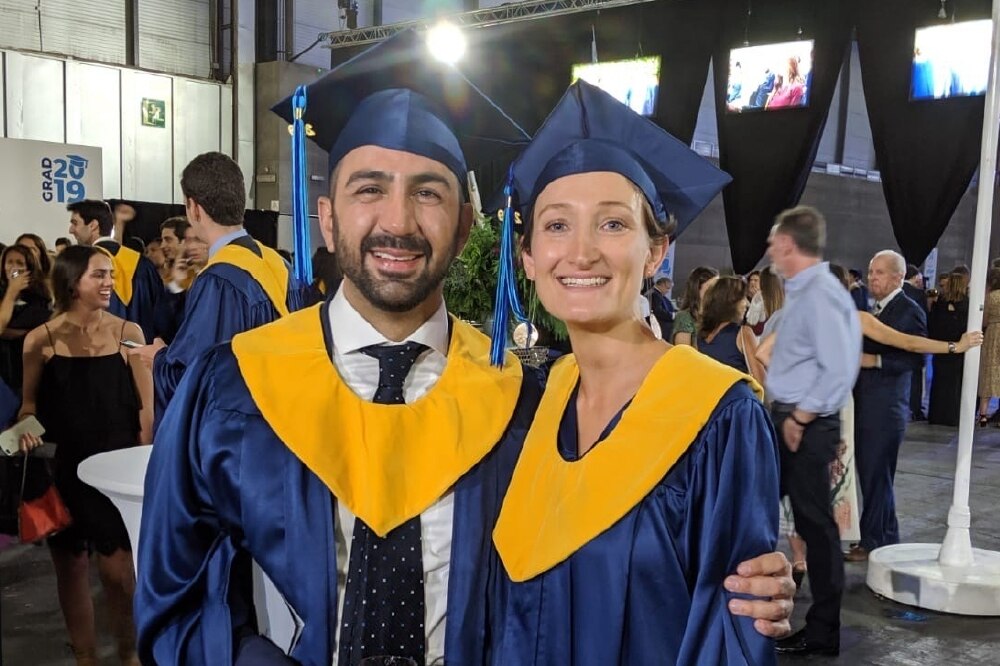
“A contraction in the industry needs to be met with expansion by the individual. You should be prepared to build a global career. It’s also important to build your network when you’re starting out. Please, never underestimate your peers. I think so often we try to network up but networking laterally is equally important. You should find the collaborators that make you better. This might be controversial, but I find in-person networking much more effective. Whenever possible, go to the event, go to the premiere, and ask questions that foster learning and connection.”
And, finally, Maya explained her approach to becoming the Next Best You: “In terms of choosing what work to make and who to make it with (these are incredibly important decisions as projects can take many years), hone your voice and let your values guide you. Then work, work, work and work until you get there.”
Study the International MBA at IE Business School
Are you a business professional in search of a meaningful challenge? Our International MBA is set up for you to succeed. Much like with Maya, we want you to take detailed business acumen to carve a career in any area. Whatever field you work in, our International MBA can provide you with a framework to ensure success and fulfilment. Join us as we help you define your purpose and put you on the world stage.
Reach success with the International MBA
Apply acute business expertise in any field with a world-leading International MBA at IE Business School.

Benjamin is the editor of Uncover IE. His writing is featured in the LAMDA Verse and Prose Anthology Vol. 19, The Primer and Moonflake Press. Benjamin provided translation for “FalseStuff: La Muerte de las Musas”, winner of Best Theatre Show at the Max Awards 2024.
Benjamin was shortlisted for the Bristol Old Vic Open Sessions 2016 and the Alpine Fellowship Writing Prize 2023.






